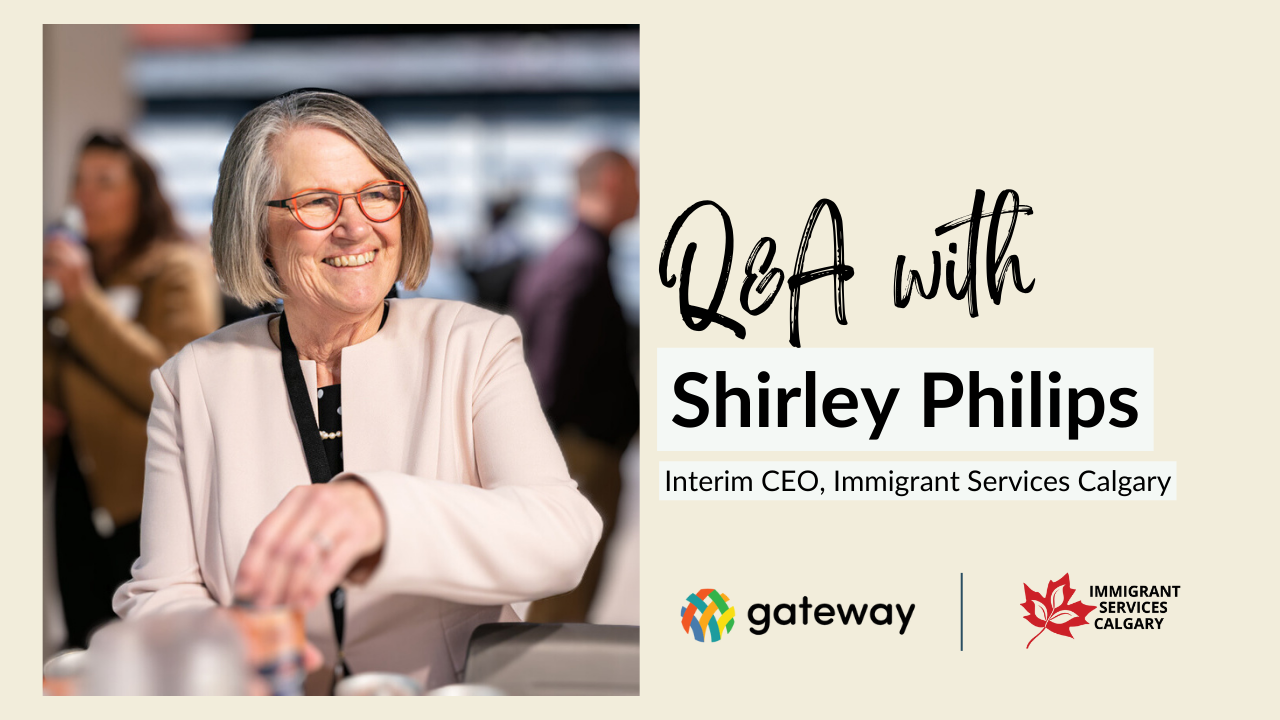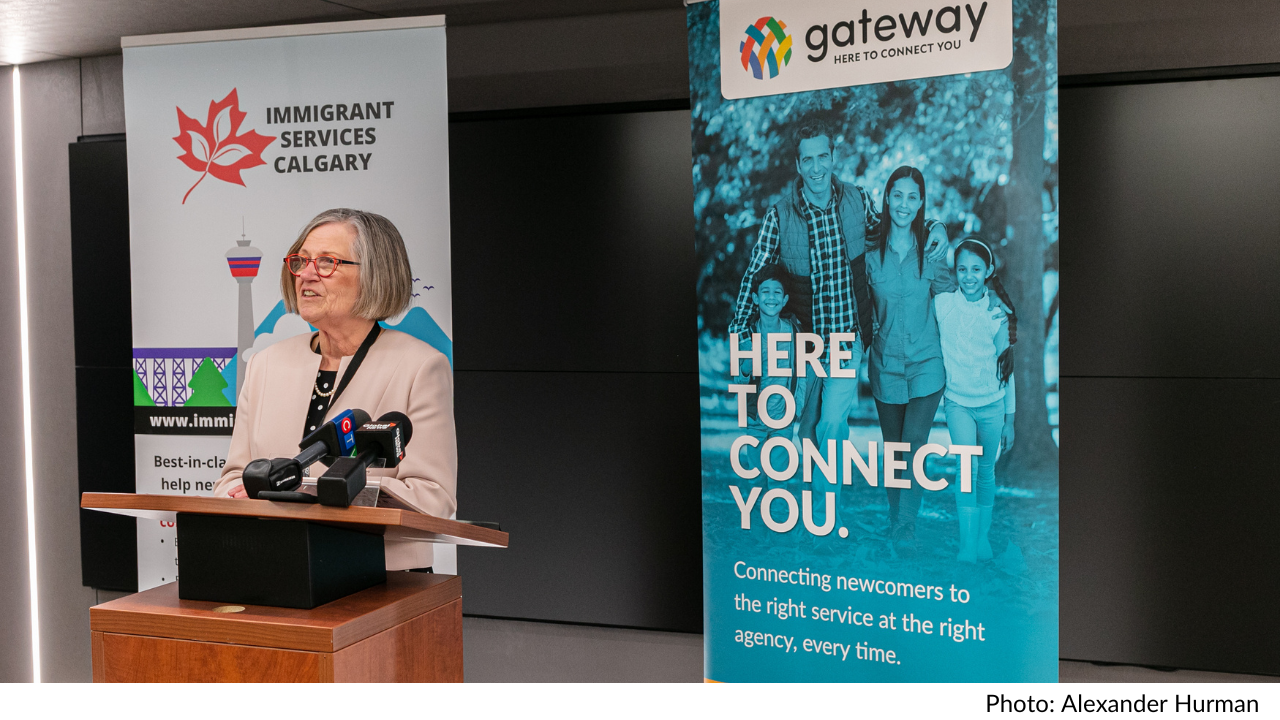
One by one, we’re featuring Q&As with all of our partners so you can get to know them — and their work — a bit better.
This June, find out the challenges, rewards, and motivators for Shirley Philips, the interim CEO of Immigrant Services Calgary (ISC).
Answers have been edited for clarity and length.
Question: Describe your organization’s mandate.
Answer: The mandate of ISC is to serve newcomers, and has been for more than 40 years now, with a variety of services — and to motivate both the public volunteers and funders to support our work.
Q: What led you to where you are now professionally?
A: I started off as an ESL teacher at the YWCA, and also worked with Calgary Catholic Schoolboard for adults. Then I moved, and eventually headed up the Mennonite Centre for Newcomers in Edmonton. When I became the executive director there, we grew the organization about 60 per cent, and helped form the Alberta Association Immigrant Serving Agencies.
When I came back to Calgary, I remained interested in working with immigrants by joining the board so various organizations including Momentum, Calgary Catholic Immigration Society, and Discovery House, where the clients are largely immigrant women, and then joined the board of ISC,
Q: What does a usual workday look like for you?
A: I get up early and go through emails. I’m often in back-to-back meetings with staff. At the moment, the focus has been internal for me; the themes of my role have been stability and sustainability.
I’m also helping with our fund development, so there’s a lot of negotiation. And although I’ve met all our partners with Gateway, I’m just really trying to connect with them, and make sure we’re going forward together.
And, of course, now we’re looking to the future.

Q: What’s the most rewarding part of this work?
A: Meeting the staff has been really fun for me, because when I started in January, we were still working from home.
Now we’re doing hybrid, and I like to meet people. They come from so many places across the world, and yet, we are working together on the same mission. And I find the staff very caring; they want ISC to be successful.
Q: What’s the most challenging part?
A: Funding. We’re very pleased that we have government funders and sponsors for various programs, but we could do more — maybe meet some of the challenges and get some other really innovative things off the ground — if we just had the funding.
Q: What motivates you?
A: On a personal basis, it’s my granddaughters. They are so bright and brilliant and talented. My faith is a motivator to me, and I have appreciation for others with a variety of faiths.
In terms of being here at ISC, it’s probably just feeling that we are doing something to help people. And that’s what we want. We don’t just want to count numbers and say, ‘We’ve served this many people.’ We want to say, ‘What’s the purpose and what’s the outcome? What can we do better, to make it even better for them?’
Q: What’s the most valuable thing you’ve learned?
A: Oh, my goodness. I think probably to listen more. I’m a person of action, but I also say to myself: ‘Listen, gather the facts, it’s all right to say I have to think about it overnight.’
Q: What are your hopes for your organization’s sector?
A: I want ISC to be seen as a collaborative, vital part of the community. I want to see that we’re offering quality, caring services to newcomers, and that we have engaged with and advocated for people coming from all over the world.
So that’s a big, big vision—but it has to be.
Recent Comments